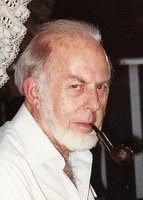Discriminated Against For Being Poor
 Middlebury was a separate town when Kent School was built on South Arlington Street in 1888. When I was a pupil there in the sixth through eighth grades Middlebury was just a neighborhood on Akron's industrial east side.
Middlebury was a separate town when Kent School was built on South Arlington Street in 1888. When I was a pupil there in the sixth through eighth grades Middlebury was just a neighborhood on Akron's industrial east side.The old, three story building with floors and stairs of wood was a firetrap. It was condemned after our eighth grade class graduated in the spring of 1940. The girls made little programs with pictures they had drawn on the cover. The names of the graduates were mimeographed in purple ink.
From the rear windows of the building located on high ground you could see Goodyear Plant One and the Mohawk Rubber Company factory.
There were forty-four kids in our class. Half of them lived at the nearby Childrens Home. We were a rather unruly bunch, but for the most part quite happy and blissfully unaware that we were on the lowest rung of the economic ladder. A boy named Dewitt Russell received an American Legion award for being the outstanding member of the class. A week earlier he had punched out the teacher, breaking her glasses. I guess having Dewitt receive the award said something about the rest of us.
I was a schoolboy patrolman at a miserable intersection along a street where prostitutes and predators roamed and you could find the only theater in town showing dirty movies. A railroad track ran along the cross street so you had to watch out for both cars and trains. The captain, Arthur St. Claire, accompanied me the first day to show me the ropes. Two boys shoved him out of the way and ran across the street. "Catch those guys!" he cried, so I caught them. The lesson I learned was never catch two guys in an alley when you're alone.
One morning I held the little kids back as a train approached. A sweet-faced little girl of six shoved me in front of the locomotive. Fortunately it was a hard shove that propelled me beyond certain death. After the train had passed she gave me a cute smile.
In eighth grade the principal told us we could have a basketball team. No basketball, no uniforms, just a team. We could practice one afternoon a week at another school that had a gym. Kent school didn't. To get to the other school meant crossing dangerous clay pits where one slip meant drowning.
We had no coach. One day a man showed us how to do the most simple of all drills. Every week we hoped he'd come back. He never did.
Ohio high schools could play 18 games at that time. We played 28 because everyone knew that playing us meant certain victory. The fat principal would come into our classroom shortly after lunch and in her singsong voice would say, "You boys have a game at David Hill School so you can leave at two-thirty." Leaving meant walking to David Hill or wherever the game was to be played. All but one of the other schools were miles away. It rained and snowed a lot that winter.
Our opponents had gyms, coaches, uniforms, cheerleaders, cheering sections. We played in our street clothes and were the subject of great ridicule.
We lost 27 of those 28 games. We beat Hotchkiss by one point and it was purely coincidental that the only game we won was the only one in which I couldn't play because of a sprained ankle.
So who were the winners? We were, of course. We learned to cope on the mean streets of a mean and dirty town. We learned to be tough because we had to be. That's the way it is when you're hanging onto the bottom of the rope. I've always been thankful that I was among the lucky ones.
www.dickstodghill.com


0 Comments:
Post a Comment
<< Home